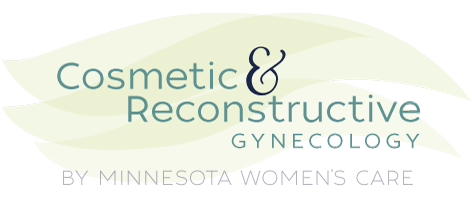
Lichen Sclerosus is a skin condition characterized by progressive thinning of the affected tissues. The condition most commonly affects the epidermal skin of the vulva and anal areas. Very rarely the skin outside of these areas can be affected. The mucosa tissue inside the vagina is not affected.
Common Symptoms & Concerns
- Painful intercourse
- Chronic itching (vulvar and anorectal)
- Vulvar or perineal burning
- Fragile skin
- Obliterated vulvar tissue
- Blisters
- Easy bleeding with rubbing of tissues
Most women will NOT have ALL of these symptoms. The most common symptom is vulvar itching and irritation.
About Lichen Sclerosus
Lichen Sclerosus is often underdiagnosed and mistreated resulting in progressively worsening destruction of the vulvar and perianal tissues. The tissues can thin, the vaginal opening may become more narrowed, fissures and skin breakdown can occur. White patches and/or hypopigmented areas appear on the vulva.
The cause of lichen sclerosus is unknown. An overactive immune system or an imbalance of hormones may play a role. Previous skin damage at a particular site on your skin may increase the likelihood of lichen sclerosis at that location. Lichen sclerosis isn't contagious and cannot be spread through sexual intercourse. Lichen sclerosus often occurs in postmenopausal women, but can occur in premenopausal women as well.
Treatment Options for Lichen Sclerosus
The traditional and most common approach to treatment of lichen sclerosus involves the use of corticosteroid creams applied to the vulva. This helps in initial cases in decreasing pain, itching and irritation. However, long term use of steroids can actually worsen the overall condition as the steroids worsen the skin thinning.
Unfortunately, steroid therapy is all that traditional medicine offers for this condition. The result is progressively worsening lichen sclerosus over time. Some lucky women have spontaneous resolution where the condition resolves itself. Most are not this lucky.
Dr. Ashford's Approach
Corticosteriods may be used initially and intermittently but our focus is on helping the affected skin to repair itself using medications or devices that stimulate the skin to regenerate new collagen and improve blood supply to the area. Single therapy or combination therapy is highly effective for treatment of lichen sclerosis using:
-
PRP used with or without hyaluronic acid.
-
C02 Laser with Femilift
-
Thermiva RF therapy
-
Viveve (Geneveve) RF therapy
-
Surgical treatments to correct Clitoral Phimosis (scarring of the clitoris secondary to lichen sclerosus)
-
Surgical treatments to OPEN the vaginal outlet that may have become constricted by lichen sclerosus
These approaches are highly affective in treating symptoms AND helping with cosmetic appearance and changes that occur as a result of lichen sclerosus.






